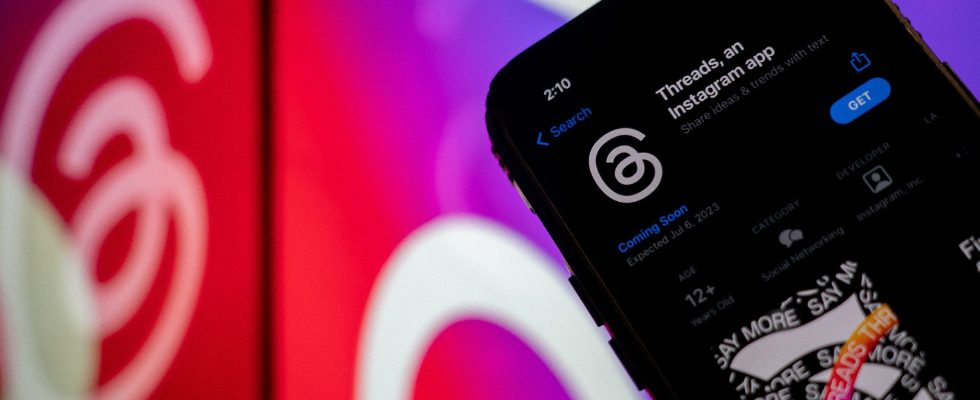It was created by Meta in the hope of profiting from the setbacks of the platform owned by Elon Musk. Threads now has a web version since Thursday, August 24, with the hope that it will help revive its ultimately sluggish start.
This new version is seen as essential to attract professionals and the media, who are among the most active users on this type of social networks, and post messages most often on their computers, during their working hours.
“Threads is now available for everyone, let us know what you think!” Adam Mosseri, the head of Instagram whose Threads is the variation, wrote Thursday.
A web version requested by users
Until now, the social network was only accessible on smartphones. “The Threads team has worked hard to provide a mobile-equivalent experience and will be adding features to the web version in the coming weeks,” a spokesperson for the group said.
Conceived as a direct competitor to Twitter, now called X, Threads launched in early July, with Meta inviting Instagram’s billion users to download the app, giving the latest addition a record start.
But once the feeling of curiosity subsided, daily use slowed down sharply and users demanded the launch of a web version as well as various adjustments.
Celebrities to launch the app
Many celebrities who had early access to the application, such as Jennifer Lopez or American football star Tom Brady, end up using it only rarely. X therefore continues to dominate in this type of format, but the persistent disorder on the network since its takeover by the owner of Tesla is gradually eroding its user base, who are now looking for alternatives.
A status that Threads does not yet have: according to data from Similarweb, the platform currently has an average of 10.3 million daily users, compared to 49.3 million shortly after its launch.
“It will take time to stabilize the application, but as soon as it is done, we will focus on user acquisition,” Meta CEO Mark Zuckerberg warned from the start of Threads.
However, the application is still unavailable within the European Union because it does not currently comply with the conditions laid down by European legislation in terms of data protection.
